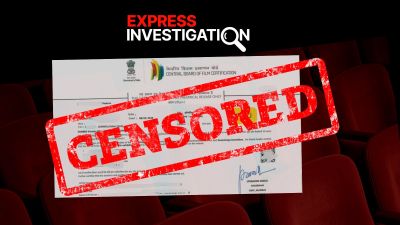Going against its own judgement
Hundreds of flat buyers from builders like Ansals, DLF and so on will escapethe scrutiny of the Income Tax Department on the question whet...

Hundreds of flat buyers from builders like Ansals, DLF and so on will escapethe scrutiny of the Income Tax Department on the question whether they haveunderstated the value of their flats in the purchase agreements. Under theIncome Tax Act, if the value is understated by 15 per cent of the marketvalue, then the Central Government can purchase the property for the summentioned in the purchase agreement. The flat buyers will now escape thecross checking by the income tax authorities, thanks to the Supreme Court’sjudgement in DLF Universal Ltd vs Appropriate Authority. The judgement is byJustices D.P. Wadhwa and Ruma Pal. It raises the issue whether the apexcourt has granted the exemption without addressing itself to the issue ofthe end-use of its power and the impact on society of such an exemption.
The applicants for flats had made initial booking deposits with thebuilders. The subsequent formal agreement between the buyers and thebuilders for the sale of the flat had certain terms in addition to thosewhich were in the application for booking. By the time of this formal orprivate agreement between the buyers and the builders, certain payments interms of the payment-construction plan had already been made. Finally, thebuyers and the builders jointly signed and filed the statutory agreement inForm 37-I prescribed by the Income Tax Act for examination by the Income TaxAppropriate Authority as to whether black money was involved in thetransaction. The black or cash money is not shown. The value of the propertyis hence understated and the Appropriate Authority can order that theproperty be sold to the Union Government at the price mentioned in thestatutory agreement. The statutory 37-I agreement is therefore the keydocument and the law requires that this be filed within 15 days of theagreement of transfer between the buyer and the seller.
The problem arose when the Appropriate Authority rejected the 37-I statutoryagreements filed by the buyers and the builders on the ground that 15 dayshad to be calculated from the date of the booking of the flats and not fromthe date of the subsequent private agreement or the statutory agreementsigned by both the parties. The rejection letters came within a month of thefiling of the statutory 37-I agreement. After losing in the Delhi HighCourt, DLF and others appealed to the Supreme Court.
The apex court had three options as to the point from which 15 days wouldrun: the date of booking, the date of private agreement or the date of thestatutory 37-I agreement. The appropriate authority had held that all themain terms between the buyer and the builder had been decided on the date ofthe booking of the flats by DLF and Ansals. Hence 15 days had to run fromthat date. Justice Wadhwa who wrote the judgement held that 15 days had torun from the date the statutory 37-I agreement was signed between theparties. Further, this 15-day period was not mandatory but only directory.
But, after this, instead of sending the matter back to the AppropriateAuthority, as had been done by the Delhi High Court, the Supreme Courtdeclared that the Authority must issue no objection certificates to thebuyers and the builders. This was so since the statutory 37-I statements hadbeen held to be valid and more than three months had passed between theirfiling in 1997 and the decision now in 2000. The Income Tax law requiresthat the Appropriate Authority has to issue a `no objection certificate’ ifit does not decide on the issue of the understatement of the value of theflats within three months of the receipt of the Form 37-I statement.
The judgement nowhere explains how a decision in favour of a party on thelegal issue of an application being time-barred becomes automatically adecision on whether substantial black money has been used in the transactionor not. The interpretation rule that a meaning must be given to the law tocurb the mischief, in this case black money, has not even been referred to.
As an institution especially empowered by the Constitution to do “completejustice”, can the apex court enable the bypassing of a law meant to curbblack money which, according to its own judgments, is inextricably linked tocorruption and a parallel government?
The apex court today has two stream of judgements. One in which it acts asthe moral guardian of national governance, as in the M.P. Trivedi or theVohra committee report and the hawala cases. The others are those where ithas simply abandoned this moral role as in the R.K. Garg vs Union of Indiaor the Black Money Ordinance, the tax samadhan and voluntary disclosurejudgments. With the DLF judgement, the scale seems to be tipping in favourof the second kind. Its euphemistic brand name is the realistic or pragmaticschool of judiciary.



- 0111 hours ago
- 0212 hours ago
- 0312 hours ago
- 0412 hours ago
- 0512 hours ago




























